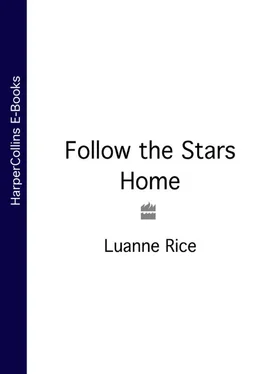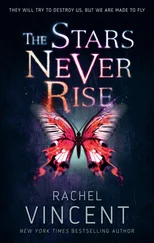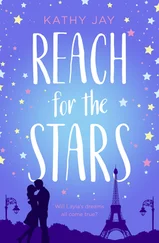1 ...8 9 10 12 13 14 ...22 In Alan’s senior year at Harvard, he had found himself dreaming every night of Neil. One cold November morning he ripped up his application to Woods Hole and applied to Harvard Medical School instead. Malachy had been disappointed, and Tim had thought he was crazy. Tim had had the idea they could share a boat, him catching fish and Alan studying them. He had confronted Alan on the steps of the Widener Library, wanting to talk some sense into him.
“Stick with fish,” Tim had said. “If they die, who cares?”
“Exactly,” Alan had said. “I’m studying plankton past midnight every night, and I can’t get that worked up about it. I’m going to be a doctor.”
“And do what?”
“Help people,” Alan had said, thinking of their brother, their parents.
“You want to spend your life with sick people?” Tim had shouted. “You think you can make any difference at all?”
“Yeah, I do,” Alan had said.
“Like Dr. Jerkoff did with Neil?”
“He should have talked to us,” Alan had said. “Told Mom and Dad what could happen. Helped them to understand, to prepare us better. He should have helped us help Neil die, Tim. I hate thinking of us all going through that alone.”
“What’s the difference, how it happened?” Tim had asked wildly. “He’s gone. Nothing can change it.”
“But he suffered,” Alan had said. “It didn’t have to be so bad –”
“I know he fucking suffered,” Tim had shouted, shoving Alan. “I was there. You think you have to tell me?”
“Quit acting like an asshole,” Alan had said. “Neil would hate it.”
“He’s dead,” Tim had shot back, hitting Alan’s chest with the heel of his hand.
With Neil gone, Alan was the oldest brother. Tim was tougher, but Alan was big and had never lost one of their fights. He’d stepped away, shaking with rage.
“You sat outside his window,” Alan had said. “You were afraid to go in. I want to help people not be afraid.”
“Fuck you, afraid,” Tim had said. “I’ll shove it down your throat.…”
He hooked a right, and Alan took it in the gut. Their eyes met, wide and surprised. Alan grunted and swung back, driving a left into Tim’s side. Tim moved in, and Alan tried to push him off, but Tim raked his fingers down Alan’s neck, and the brothers were rolling on the sidewalk in the middle of Harvard Yard.
Alan slammed him with a right to the head. Tim had him by the hair, and Alan jerked his arms hard to break the grip. A gash over Tim’s eye was bleeding, and Alan felt the nail marks down his throat. Springing up, he reached down to yank Tim to his feet. Tim wasn’t done fighting. He swung blindly through the blood in his eyes. Alan came to his senses.
“Hey, knock it off,” he’d said, shaking Tim by the shoulders.
Another left hook.
Alan caught it in the air. The brothers circled, unsteady on their feet. Both were wary, but Alan’s burning anger was gone. As Tim swung again, Alan hit him in the solar plexus and sent him to his knees. He stepped away, but Tim kept coming back for more. It’s insane, Alan thought. All he wanted was to help children, cure them when he could and comfort them when he couldn’t, and here he was, fighting to the death with his brother.
After the fight, Alan and Tim drifted even further apart: Alan buried himself in his studies, Tim chose to escape back to the sea.
For the next few years Tim had stayed at sea. Lobstering took most of his time. It weathered his face and toughened his hands; even more, it hardened something deep inside him. He forgot how to be with people. He’d drink and fight, or he’d flash a smile that let some girl know how lonely he was. That he needed her to hang on to.
One of those girls was Dianne. Knowing that Dianne was interested in Alan made Tim go after her full blast. He had pulled out all the stops. Tim wanted someone to save him, and he chose a woman with a special talent for giving. Some of his behavior was an act, he thought, as he played the part of a lonesome, drunken lobsterman just to get her attention. But it worked, because it was real. So he thought he was playing a role, but he really wasn’t. And Alan had watched it happen, Dianne falling in love with his brother.
Alan gave up without a big fight for only one reason: If he couldn’t have Dianne, maybe she could at least straighten his brother out. At least that was what he told himself. Dianne was strong and solid, and Tim had been heading downhill since the day Neil had died. Maybe marriage and children would fill the void, make him stop hurting. But they hadn’t.
“I hear you saw my girls yesterday,” Mrs. Robbins said, startling Alan as she wheeled in a cartload of periodicals to be shelved.
“I did,” Alan said.
“How is Julia?”
“She’s a champ,” Alan said.
Mrs. Robbins had been the Hawthorne librarian for forty years. Alan had heard kids in his office claim she had read every book on the shelves, and he could almost believe it was true. Her blue eyes were clear with intelligence and compassion. Curiosity kept women like Mrs. Robbins young.
“But how is she?” Mrs. Robbins asked evenly.
“You know,” Alan said. “She’s holding her own.”
Mrs. Robbins bit her lip. She shuffled through a pile of National Geographics as if to make sure the issues were in order. But Alan knew she was just pulling herself together.
“Well, Alan,” Mrs. Robbins said. “We count on you.”
“Thanks,” he said.
“I’m worried for Dianne,” she said.
“Why?” he asked, alert.
“She wears herself out,” Mrs. Robbins said, starting to whisper. The words came out fast, and her brow was creased with worry. Alan leaned forward to hear her. “Julia’s light as a feather. She’s no weight at all. But the effort … even when she’s just sleeping, resting in the corner of Dianne’s workshop. It takes every bit of energy Dianne has just to let her be. Not knowing the future.”
“That’s the challenge …” Alan said, pulling something out of his generic repertoire. Doctors were supposed to be wise. Inside, he was a mess, hearing about Dianne’s pain.
Thinking of Neil, Alan understood what Mrs. Robbins meant. Seeing a person you love suffer is the hardest thing there is. Taking action – bandaging the wound, setting a fracture, cleansing a burn – was always easier than sitting back, accepting there was nothing you could do.
“Dianne’s brave,” Alan said.
“Most of the time.”
“She could ask me for more help than she does.”
“Oh, Alan,” Mrs. Robbins said. “Don’t you know how hard it is for her to be around you – as kind as you are – you will always be a reminder of Tim.”
“Yeah,” Alan said, hurt to know the truth from Lucinda.
“Heard from him lately?”
Alan shook his head. Two months earlier, Tim had called from Camden, needing to borrow a thousand dollars. Before that Alan would get collect calls or postcards from ports from Lubec to Halifax. Tim had become a seafaring drifter. Sometimes he visited Malachy. He had no home, no address. That was the price he’d paid for what he’d done: leaving his wife and child.
“The poor wretch,” Lucinda said. “It’s almost impossible to loathe him when he’s so tormented. But not quite.”
“I know what you mean,” Alan said, feeling Lucinda’s gaze. He wondered whether she had figured it out. She was too loyal to Dianne, too discreet to ask, but he believed she knew.
Alan was in love with Dianne.
The feeling had never gone away. Even when she’d chosen Tim, with Alan tricking himself into thinking Dianne was stopping Tim’s decline, saving his life, he loved her anyway. He’d do anything to help her, then or now.
Читать дальше












